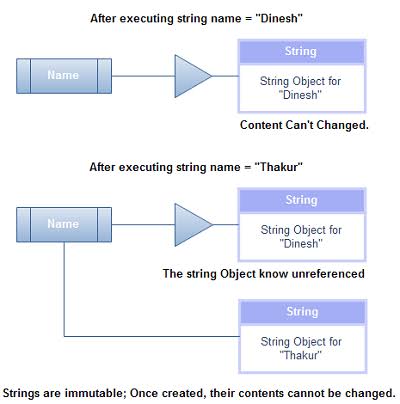Why Are Strings Immutable in Java? Security and Performance Benefits
Why Are Strings Immutable in Java? Security and Performance Benefits
Blog Article
Unalterable Strings: A Trick Component in Ensuring Information Uniformity and Integrity
In the realm of data management, the importance of immutable strings can not be overemphasized. These unchanging sequences of personalities play a crucial role in supporting the honesty and precision of information within systems. By maintaining a state of immutability, data uniformity is guaranteed, fostering a foundation of integrity upon which crucial procedures count. The principle of unalterable strings transcends simple technicality; it is a linchpin in the facility web of information governance. As we check out the benefits, execution strategies, and functional applications of immutable strings, a more clear image emerges of their essential nature in securing the electronic landscape.
The Concept of Unalterable Strings
Immutable strings, a basic concept in programs, describe strings that can not be customized once they are created. Basically, when a string value is designated, any type of procedure that shows up to modify the string in fact produces a new string. This immutability ensures data consistency and reliability in applications, as it avoids unforeseen modifications to the original information.
Benefits in Information Consistency

Data consistency is important in different aspects of software application growth, consisting of database management, multi-threaded atmospheres, and distributed systems (Why are strings immutable in Java?). Unalterable strings contribute dramatically to accomplishing this consistency by stopping data corruption as a result of simultaneous access. In situations where multiple procedures or threads connect with the exact same data all at once, unalterable strings act as a protect against race problems and synchronization problems
Moreover, the immutability of strings streamlines debugging and testing processes. With unalterable strings, programmers can trust that as soon as a string is set, it will continue to be the same, making it simpler to trace the resource of errors and making certain that test instances create regular results. This dependability in data managing inevitably leads to more robust and steady applications.

Applying Unalterable Strings
Guaranteeing the immutability of strings requires a thoughtful strategy to their application in software application growth. One key technique is to design string courses in a method that protects against adjustments once a string things is produced. By making strings immutable, designers can boost data uniformity and reliability in their applications.
To carry out unalterable strings efficiently, programmers ought to prefer developing new string things as opposed to customizing existing ones. This technique guarantees that as soon as a string is appointed a value, it can not be altered. Additionally, any procedure that appears to customize the helpful hints string needs to develop a new string with the preferred adjustments as opposed to altering the initial.
Moreover, making use of unalterable strings can streamline concurrency monitoring in multi-threaded settings. Since immutable strings can not be altered after production, they can be read this post here safely shared amongst numerous strings without the risk of information corruption.
Duty in Reliability Assurance
In software application development, the usage of immutable strings plays a critical function in making certain the integrity of data procedures. Immutable strings, once created, can not be customized, guaranteeing that the data they represent stays consistent throughout the application's implementation. This immutability residential property gives a level of guarantee that the information being processed will certainly not be inadvertently transformed, bring about unanticipated outcomes or errors in the system.
By integrating immutable strings into software layout, programmers can boost the integrity of their applications by reducing the threats linked with mutable information - Why are strings immutable in Java?. Unalterable strings help in stopping information corruption or unexpected alterations, which can be particularly crucial when handling sensitive info or when information stability is critical
Additionally, using unalterable strings streamlines concurrent handling, as numerous strings can safely access and share string data without the danger of one thread modifying the content while one more is reading it. This facet adds significantly to the overall dependability of the software program system, making certain foreseeable and regular habits in data taking care of operations.
Applications and System Combination
The seamless combination of immutable strings right into numerous applications and systems is essential for guaranteeing durable information consistency and dependability across diverse technological settings - Why are strings immutable in Java?. Immutable strings play a crucial role in boosting the stability of information exchanges and communications within facility software ecological communities. By integrating unalterable why not try here strings into applications, programmers can reduce the dangers connected with information tampering, unapproved modifications, and unintentional modifications, therefore strengthening the general protection position of the system
Immutable strings can improve interoperability in between inconsonant systems by giving a standard style for data representation, enabling much more efficient information handling and exchange procedures across interconnected systems. By embracing immutable strings in applications and system combination processes, organizations can strengthen their information facilities and maintain the reliability and uniformity of their info assets.
Verdict
Finally, unalterable strings play a vital function in maintaining information consistency and dependability in various applications and system assimilations. By ensuring that strings can not be changed when created, the honesty of data is preserved, minimizing the risk of mistakes and disparities. Applying immutable strings can significantly enhance the dependability of systems, ultimately causing more exact and reliable information processing.

Report this page